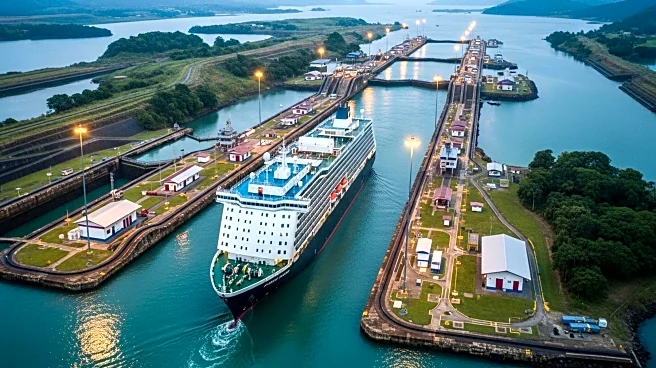What's Happening?
The Panama Canal Authority has announced a comprehensive plan to invest over $8 billion in strategic projects aimed at expanding and diversifying its operations over the next decade. A significant focus of this initiative is on water security, with plans to construct a new reservoir to support both canal operations and human consumption. This comes in response to recent droughts that have impacted canal operations. Additionally, the authority is planning to expand its capacity through new transport systems and infrastructure enhancements. The Interoceanic Energy Corridor, a proposed 76-kilometer pipeline, is a key component of the plan, designed to facilitate the transfer of energy products across Panama without requiring canal transit. The authority is also exploring the development of new port facilities to further bolster its operational capabilities.
Why It's Important?
The Panama Canal is a critical global trade route, and its efficient operation is vital for international shipping and trade. The planned investments are expected to enhance the canal's capacity and resilience, particularly in the face of climate-related challenges such as droughts. By diversifying its operations, the canal aims to maintain its strategic importance and economic contribution to Panama's economy. The proposed projects, including the Interoceanic Energy Corridor, could significantly impact global energy logistics by providing an alternative route for energy product transfers. However, the plans have faced criticism due to potential impacts on local communities, highlighting the need for careful consideration of social and environmental factors.
What's Next?
The Panama Canal Authority is set to proceed with the tender process for the pipeline project in 2026, following prequalification and technical dialogues. Construction of the new reservoir is scheduled to begin in 2027, with completion expected by 2032. The authority is also conducting a pre-feasibility study for the proposed Corozal Port, with construction anticipated to start in 2028. These developments will require ongoing engagement with stakeholders, including local communities and international partners, to address concerns and ensure successful implementation.









